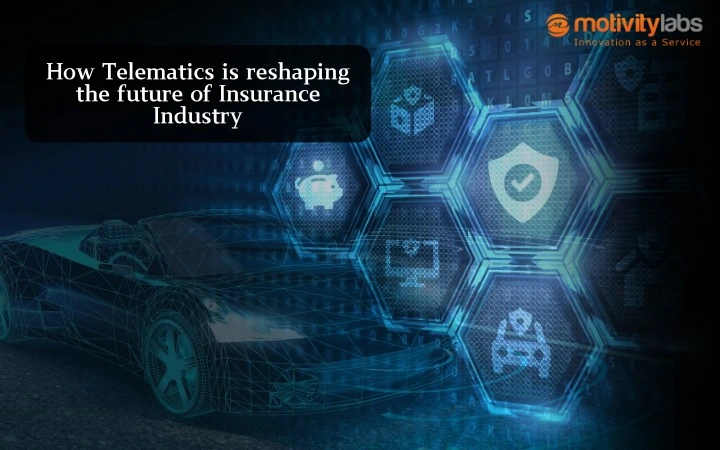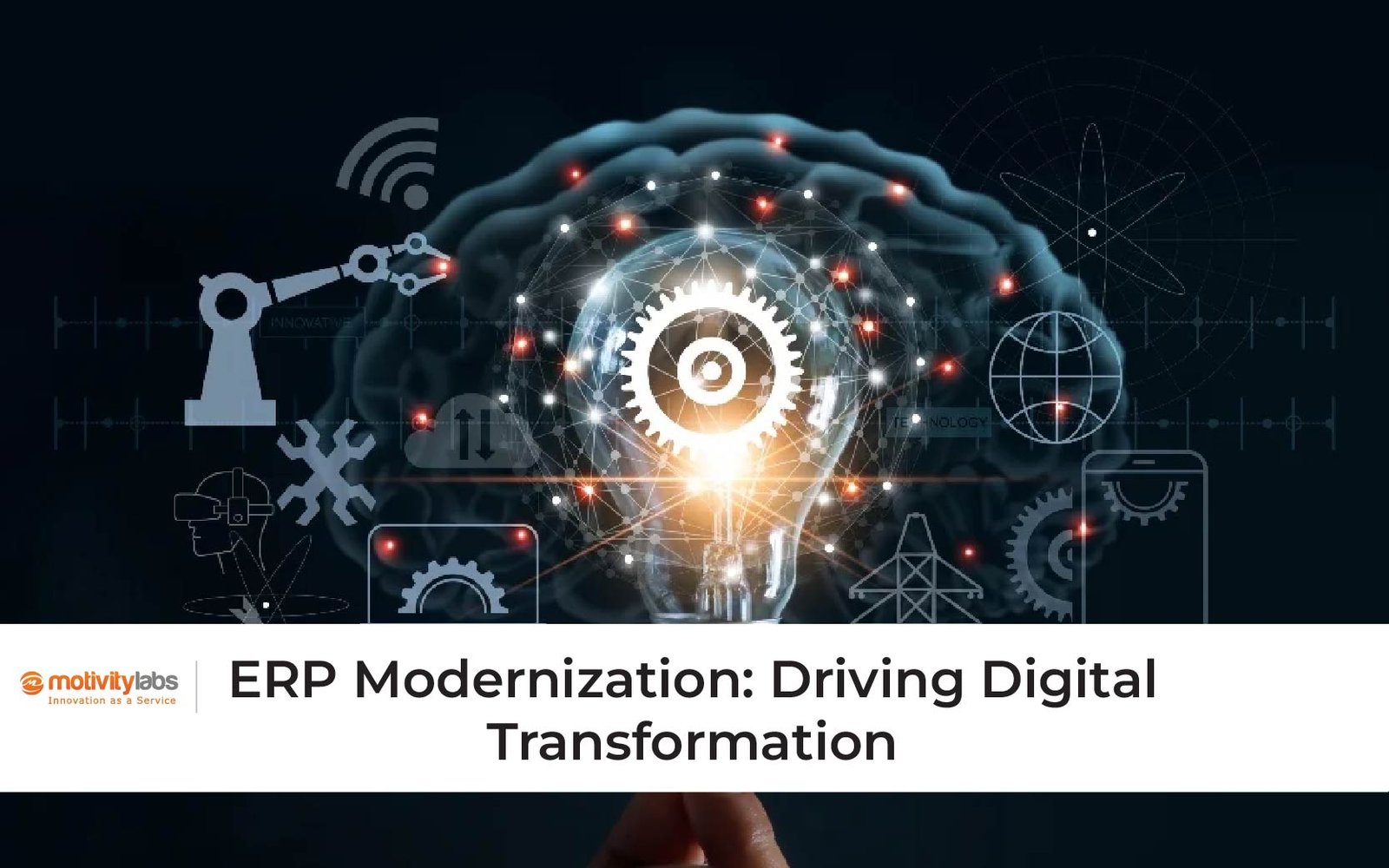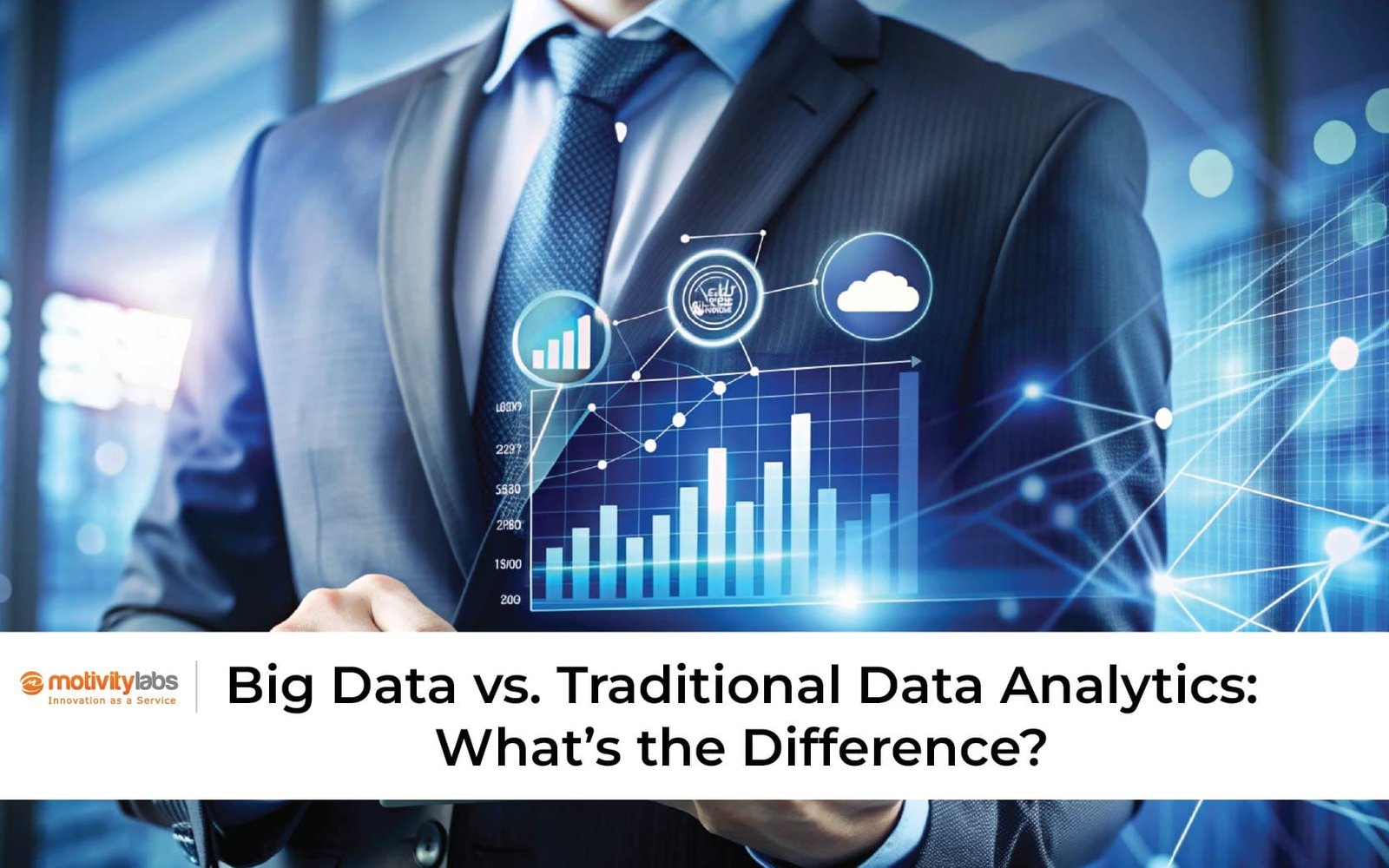An Overview: Telematics in Insurance Industry
As technology evolves, the insurance industry is witnessing a rapid transformation in its landscape and much credit for it goes to Telematics. As the name suggests telematics in insurance industry, this path-breaking technology puts to use, both telecommunications and informatics, which helps to gather and analyze data from moving objects or people. As an advantage of this, insurance software development companies are now able to offer more personalized, risk-based, and cost-effective products, all so by leveraging real-time data and advanced analytics provided by telematics for insurance.
At the forefront of telematics adoption is the Automotive Industry, as telematics for insurance has resulted in the installation of these telematic devices in millions of vehicles all around the world. These devices periodically collect data that is based on driving behavior, vehicle usage, and location, eventually allowing telematics auto insurance companies to assess the risk accurately and then based on that, offer usage-based insurance (UBI) policies. UBI rewards safe drivers with lower premiums, eventually encouraging safer driving habits.
As we move further from vehicle telematics insurance, we find that this new technology is making great progress in several other fields as well, such as health and life insurance. For example, parameters of one’s health, such as heart rate, steps, and even sleep patterns can now be tracked using these wearable devices or even mobile apps, subsequently providing insurance companies with many valuable insights into the health of its policyholders. This data is further used to offer personalized health plans, programs, and even risk-based life insurance premiums.
What is Telematics in Insurance?
Telematics is reshaping the insurance industry today, by using the combination of both, telecommunications and informatics. It does so by using this technology to gather and analyse data from vehicles. This innovative approach benefits the insurance companies in a way, by moving further away from traditional risk assessment methods, and in offering more personalized insurance solutions.
Vehicle telematics insurance systems typically involve a small device that is installed in a vehicle, usually connected to the onboard diagnostics (OBD) port. This device further collects a set of information about vehicle’s location, speed, acceleration, its pattern of braking, fuel consumption, among others. Then for its thorough analysis, this comprehensive data is gathered and then transmitted to a central server.
By using the power of telematics, insurance companies get a deeper understanding of driver behaviour and even the condition of a vehicle. This enables telematics auto insurance companies to accurately assess the risk, identify safe drivers, and then subsequently reward them with lower premiums. On the other hand, high-risk drivers may well face increased premiums, eventually reflecting their tendency for accidents or even reckless driving.
How Telematics in Insurance Industry work?
Telematics software development system typically consists of a small device that is installed in a vehicle, and is often connected to the onboard diagnostics (OBD) port. Acting like a digital watchman, this device collects different sets of data points that eventually help in providing a comprehensive picture of the vehicle’s behaviour and its driver’s habits.
Telematics devices capture a wealth of information, ranging from tracking location and speed, to monitoring its acceleration, braking patterns, and fuel consumption. This info is further transmitted to a central server for accurate analysis where it is processed using sophisticated algorithms to identify the trends, patterns, and anomalies that provide valuable insights.
By leveraging telematics data, insurance software development companies can gain a more refined understanding of risk. For example, they can identify drivers who consistently adhere to safe driving practices, doing speed limits, avoiding sudden braking, and maintaining a smooth driving style. Contrary to that, telematics data can also highlight risky behaviours such as excessive speeding, aggressive driving, or frequent hard braking, which may justify the increased premiums.
Impact of Telematics on Auto Insurance:
As we witness the implementation of telematics in insurance industry on a large scale, we can see that it has been the cause of many significant benefits for the insurance companies as well as the policyholders.Included among several others are these benefits
Enhanced Risk Assessment : Insurance companies can now do a better assessment of the risk factors which are associated with each of their policyholders, just by the collection and analysis of their driving data. This small process helps them to identify potential hazards and also take different set of preventive measures, as a way to reduce them.
Personalized Pricing : Telematics enables the insurance companies to offer more personalized pricing, based on the individual driving behaviour of their policyholders. For reference, good drivers can get lower premiums, while those with risky driving habits may have to face higher rates. This impact not only promotes safer driving but also rewards responsible driving behaviour.
Detection of Fraud : Telematics can also help to detect different types of insurance fraud and then subsequently prevent it from happening. For example, if a vehicle is reported as stolen but the telematics data shows that it is being driven around, it raises a red flag in its server and then notifies the insurance software development companies.
Improved Claims Management : Telematics can also help to streamline the process of claims in insurance, doing so by providing accurate information about the accidents from the data provided by their installed devices. This not only helps in reducing the time it takes to process insurance claims but also helps to provide customer satisfaction.
Usage-Based Insurance : Telematics enables the rise of usage-based insurance (UBI) models. In these types of insurance models, a policyholder is charged based on his/her actual driving habits rather than being charged on a flat rate. This can be particularly beneficial for low-mileage drivers who may well be overpaying under traditional insurance models.
How Telematics Improves Customer Experience?
Telematics in Insurance Industry can also help to enhance customer experience, which is the most significant aspect for insurance software development companies. As we can see, vehicle telematics insurance does so in several ways among which, a few include: –
- Increased Transparency: With the implementation of Telematics, policyholders are now presented with a clear understanding of their driving habits and how it creates an impact on their premiums. Transparency enhances customer trust and satisfaction.
- Proactive Safety Alerts: Vehicle telematics insurance systems can also send alerts to drivers in order to to warn them about potential hazards that can be over speeding or even distracted driving. This can help to prevent accidents and eventually improve overall safety.
- Personalized Safety Tips: Based on driving data, insurance software development companies can provide personalized safety tips to help drivers improve their driving skills. This can lead to increased safety on the roads and even lowered rate of accidents.
The Future of Telematics in Insurance:
As technology continues to advance, we can expect to see even more innovative applications of telematics in insurance industry. Some potential future developments include:
- Advanced Driver Assistance Systems (ADAS): Telematics systems can be integrated with ADAS features to provide real-time feedback and alerts to drivers, helping to prevent accidents.
- Predictive Maintenance: Telematics can be used to predict when vehicles need maintenance, reducing the risk of breakdowns and improving overall vehicle reliability.
- Connected Car Insurance: As more cars become connected to the internet, telematics will play a crucial role in developing new insurance products and services tailored to the needs of connected car owners.
Telematics in Health and Life Insurance:
As we observed initially, Telematics software development is not just confined to the automotive industry. Several other insurance industries like health and life insurance have also embraced this new technology, as it is reshaping the way these insurance companies do risk assessment and then offer products based on that assessed data.
For example, in health insurance, wearable devices and mobile apps are used to track health related data of a policyholder, such as heart rate, steps, and even sleep patterns. Thereafter, this data allows insurance companies to assess their policyholders’ health risks more accurately and offer more personalized health plans as compared to traditional methods.
In life insurance, telematics software development can be used to determine life expectancy and assess risks more accurately. By the similar analysis of health-related data from wearable devices and even health records, insurance companies can offer more personalized premiums to healthy individuals and vice versa.
The Future of Insurance is Telematics: Conclusion
Telematics is reshaping the insurance industry by providing a more personalized and efficient approach to risk assessment and pricing. At Motivity Labs, by leveraging the power of data and technology, we offer better products and services to our customers while also promoting safer driving habits.
As telematics continues to evolve, we can expect to see even more innovative applications that will benefit both insurance companies and policyholders. From usage-based insurance and predictive analytics to connected car features and driver behaviour coaching, telematics has the potential to revolutionize the way we think about insurance.
To partner with us for embracing telematics and staying ahead of the curve, to build stronger relationships with your customers, and to create a more sustainable and profitable future for your insurance industry, contact us today to discuss your needs. To know more about our services related to Telematics in the field of insurance, you can also mail us at info@motivitylabs.com.



